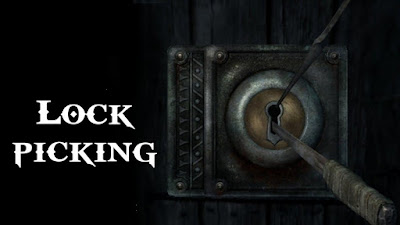Lock Picking and Surreptitious Entry
Most residential and home-use locks (and many commercial locks) can be easily picked by someone with just basic lock picking skills. Developing basic lock picking skills takes an understanding of how locks work, how they fail, and a few days of regular practice picking locks. Of course, you can't become a lock expert overnight and it can take years of study and practice to become truly skilled at picking locks, but for most locks having even minimal skills will allow you to defeat them.
Even if you have no interest in picking locks yourself, understanding how locks can be picked or otherwise bypassed can help you make your own property by choosing locks that pose a greater challenge to lock picking and surreptitious methods of entry.
Some useful references to learn lock picking and understand how locks work are below.
How to Pick a Lock – The Ultimate Guide [2021]
An Introduction to Lock Picking: How to Pick Pin Tumbler Locks
MIT Guide to Lock Picking (1991)
Lockpicking - by Deviant Ollam
Lockpicking Lawyer (YouTube Channel)
Schuyler Towne (YouTube Channel)
Bosnian Bill Locklab (YouTube Channel)
Visual Guide to Lock Picking (YouTube Video)
Lock picking is also a hobby (Lock Sport). You can download a Locksport Primer here.
Police Lock Picking
A sneak and peek search warrant (officially called a Delayed Notice Warrant and also called a covert entry search warrant or a surreptitious entry search warrant) is a search warrant authorizing the law enforcement officers executing it to effect physical entry into private premises without the owner's or the occupant's permission or knowledge and to clandestinely search the premises; usually, such entry requires a stealthy breaking and entering.
This is where lock picking taught to police has found a niche in the marketplace. Just a couple examples of schools teaching police covert entry techniques are:
Hollotec
Jericho Covert Entry
So, yes the police can get a warrant to sneak into your place when you're not around and see what they can find (or leave behind?).
The ACLU has warned that sneak and peek warrants take an extremely limited authority and expand it so that it would be available in any kind of search (physical or electronic) and in any kind of criminal case. The standard that law enforcement must show - that an investigation will be jeopardized in order to get a delayed notice warrant - is a very low one. Law enforcement agents will seek to delay notification whenever it is to their advantage to do so. Over time, the delayed notice "exception" would become the rule and would deal another serious blow to the privacy protections afforded by the Fourth Amendment.
Of course, the police don't always follow the law themselves so there is little to prevent corrupt police from poking around your home without a warrant. Police frequently trespass on private property, and it takes little more effort for them to pick open a lock to get beyond that locked door or gate.




Comments
Post a Comment